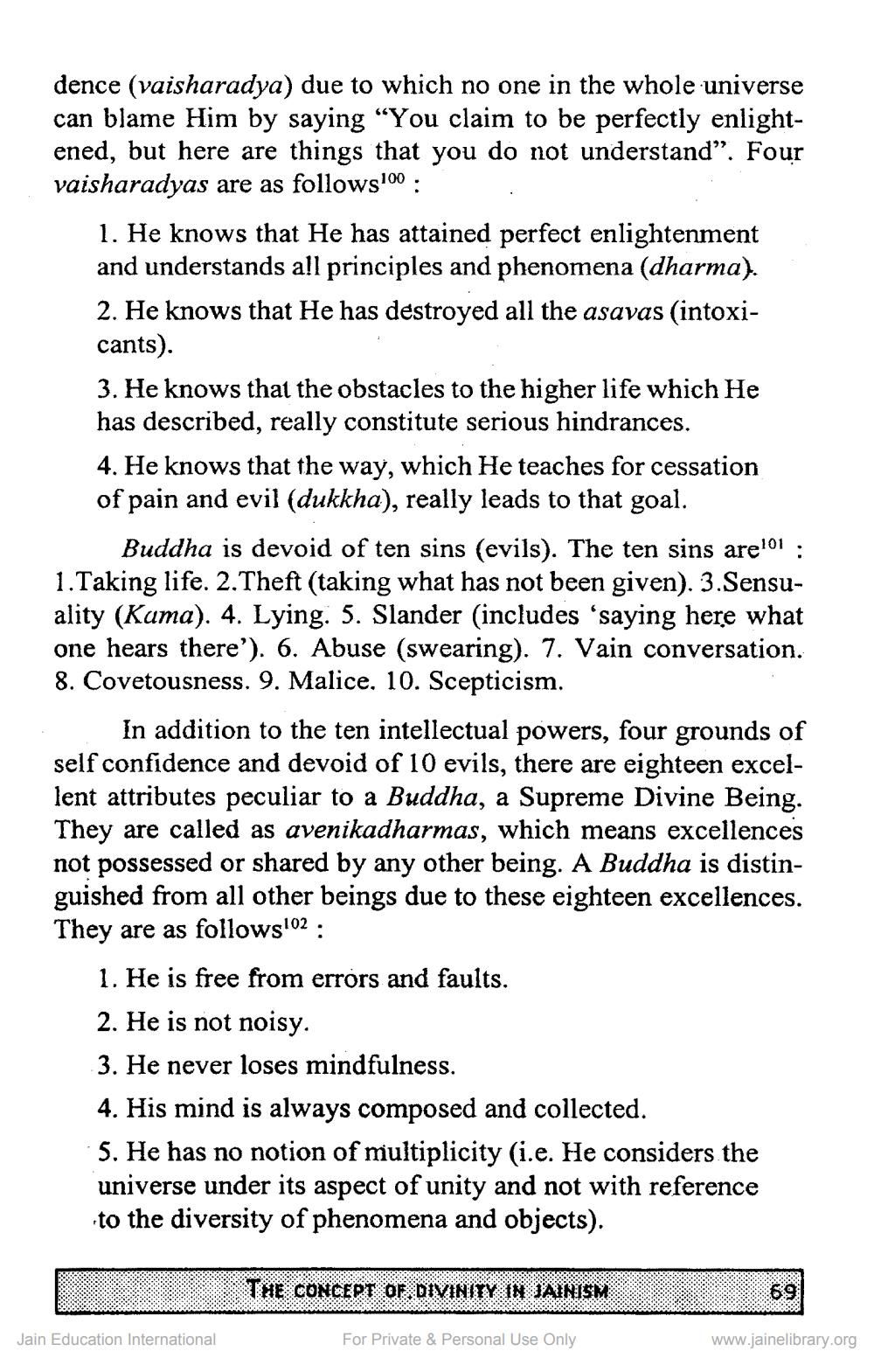________________
dence (vaisharadya) due to which no one in the whole universe can blame Him by saying “You claim to be perfectly enlightened, but here are things that you do not understand”. Four vaisharadyas are as follows100 :
1. He knows that He has attained perfect enlightenment and understands all principles and phenomena (dharma). 2. He knows that He has destroyed all the asavas (intoxicants). 3. He knows that the obstacles to the higher life which He has described, really constitute serious hindrances. 4. He knows that the way, which He teaches for cessation of pain and evil (dukkha), really leads to that goal.
Buddha is devoid of ten sins (evils). The ten sins arel01 : 1.Taking life. 2. Theft (taking what has not been given). 3.Sensuality (Kuma). 4. Lying. 5. Slander (includes 'saying here what one hears there'). 6. Abuse (swearing). 7. Vain conversation. 8. Covetousness. 9. Malice, 10. Scepticism.
In addition to the ten intellectual powers, four grounds of self confidence and devoid of 10 evils, there are eighteen excellent attributes peculiar to a Buddha, a Supreme Divine Being. They are called as avenikadharmas, which means excellences not possessed or shared by any other being. A Buddha is distinguished from all other beings due to these eighteen excellences. They are as follows102 :
1. He is free from errors and faults. 2. He is not noisy. 3. He never loses mindfulness. 4. His mind is always composed and collected. 5. He has no notion of multiplicity (i.e. He considers the universe under its aspect of unity and not with reference to the diversity of phenomena and objects).
THE CONCEPT OF. DIVINITY IN JAINISM
69
Jain Education International
For Private & Personal Use Only
www.jainelibrary.org




